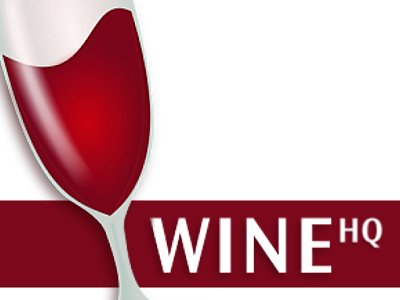Direct3D Takes First Steps In Wine 1.7.50
It's been a long wait. Over six years, in fact, for Wine to implement Direct3D 11 in some form. It's finally here, though, in its first baby-steps.
The WINE tool for Linux, which is a Windows Emulator, has finally shown its first signs of Direct3D 11 support in the new 1.7.50 release.
Yes, first signs. The announcement that the developers were going to implement Direct3D 11 support came a while back, and while there is now Direct3D 11 support, it is in a very basic form. This means that there isn't full support yet, and not all the features have yet been implemented. Therefore, not all Direct3D 11 software is supported as of now. The full release notes are available here.
Additionally, the new release includes the new Gecko engine based on Firefox 40, improved font matching in DirectWrite, added support for OpenMP when run on ARM platforms, and a heap of bugfixes.
It should be noted that Direct3D does not equal DirectX. Direct3D is part of DirectX, which handles the hardware access layer. It is therefore the most crucial component of the graphics API, but even full Direct3D support doesn't mean that all DirectX 11 applications will run perfectly. In the wine emulator, for various items that are completely implemented there is software that doesn't run smoothly.
While we wait for the developers to continue their work, you can download the new version of WINE 1.7.50 here from SourceForge, and start playing around with it. If you're looking for software that runs well, or want to contribute to the WINE community, you can help out by testing different software and letting people know how it runs at the WineHQ AppDB.
Follow Niels Broekhuijsen @NBroekhuijsen. Follow us @tomshardware, on Facebook and on Google+.
Get Tom's Hardware's best news and in-depth reviews, straight to your inbox.
Niels Broekhuijsen is a Contributing Writer for Tom's Hardware US. He reviews cases, water cooling and pc builds.
-
blader15sk8 ReplyThe WINE tool for Linux, which is a Windows Emulator...
Do you even know what WINE stands for? Wine Is Not an Emulator. -
LordConrad "Direct3D Takes First Steps In Wine 1.7.50"Reply
WINE is an acronym and should always be capitalized. Wine Is Not An Emulator. -
ohim I know i`m going to get rage down votes for this but here it goes ...Reply
Linux people be like "Oh Windows is buggy and crap, i`m gonna install Linux and run Windows app trough an emulator and have even a more crappier experience" -
HeavyHDx WINE Is No Emulator. It is a compatibility layer that provides libraries and patches that allow applications to run semi-natively on Linux and Mac. An Emulator would have Windows running in the background, essentially.Reply -
paulbatzing The reason WINE differentiates itself from emulators is that it doesn't emulate any CPU/GPU architecture. Emulators have usually a virtual cpu implemented, meaning that they have a program that takes e.g. PPC commands as input, and then simulate what a PPC would output given that input. In extreme cases of old architectures that are non standardized, they might even model the complete cpu logically. WINE doesn't need to do that, it runs natively on x86, just as Windows. It only needs to provide library's.Reply -
kryptylomese If Linux guys have to run a Windows app then we would rather do on a good operating system and not have to go anywhere near Windows and WINE actually does a very good job of it too!Reply -
scoutme NO, it's not an emulator. An emulator is an application that simulates a low level layer in order to resolve native calls in artificial way. Wine simply adds win32/dx apis to Linux. It's similar to .NET and Java runtimes, if you can feel the subtle differenceReply -
photonboy Wine and emulation:Reply
Take 15 seconds and do some research (some here have it right):
"The phrase "wine is not an emulator" is a reference to the fact that no processor code execution emulation occurs when running a Windows application under Wine. "Emulation" usually refers to the execution of compiled code intended for one processor (such as x86) by interpreting/recompiling software running on a different processor (such as PowerPC). Such emulation is almost always much slower than execution of the same code by the processor for which the code was compiled. In Wine, the Windows application's compiled x86 code runs at full native speed on the computer's x86 processor, just as it does when running under Windows. Windows system services are also supplied by Wine, in the form of wineserver."

